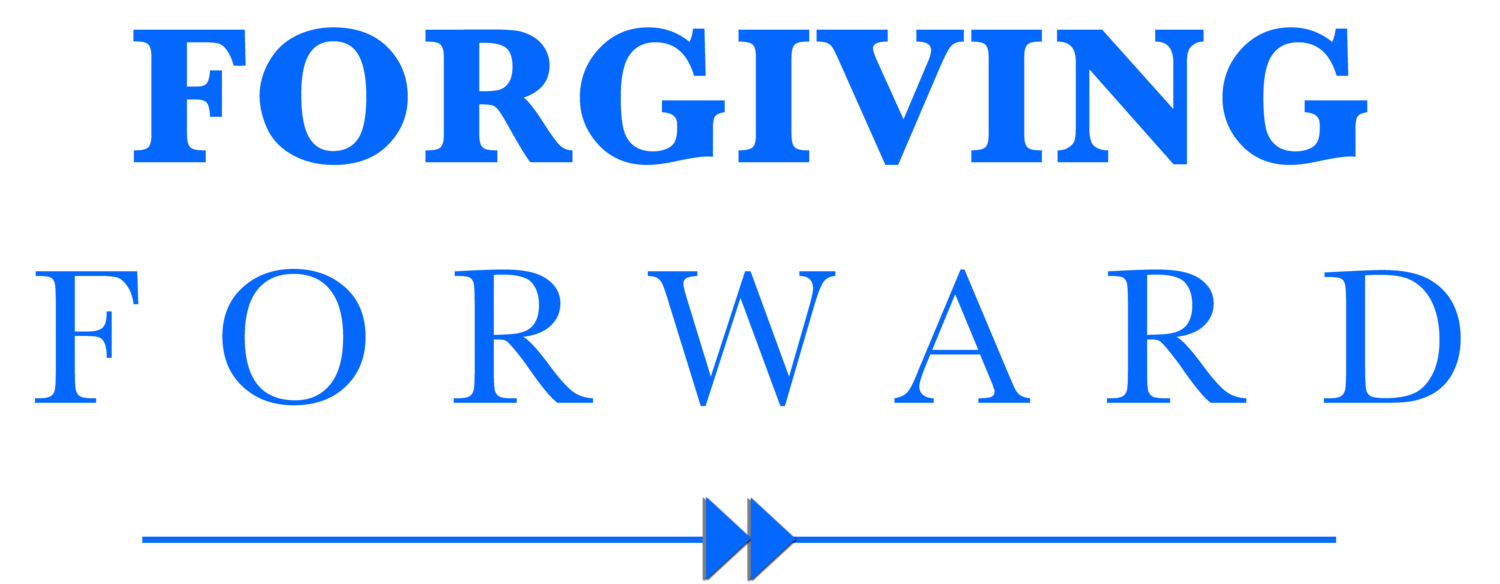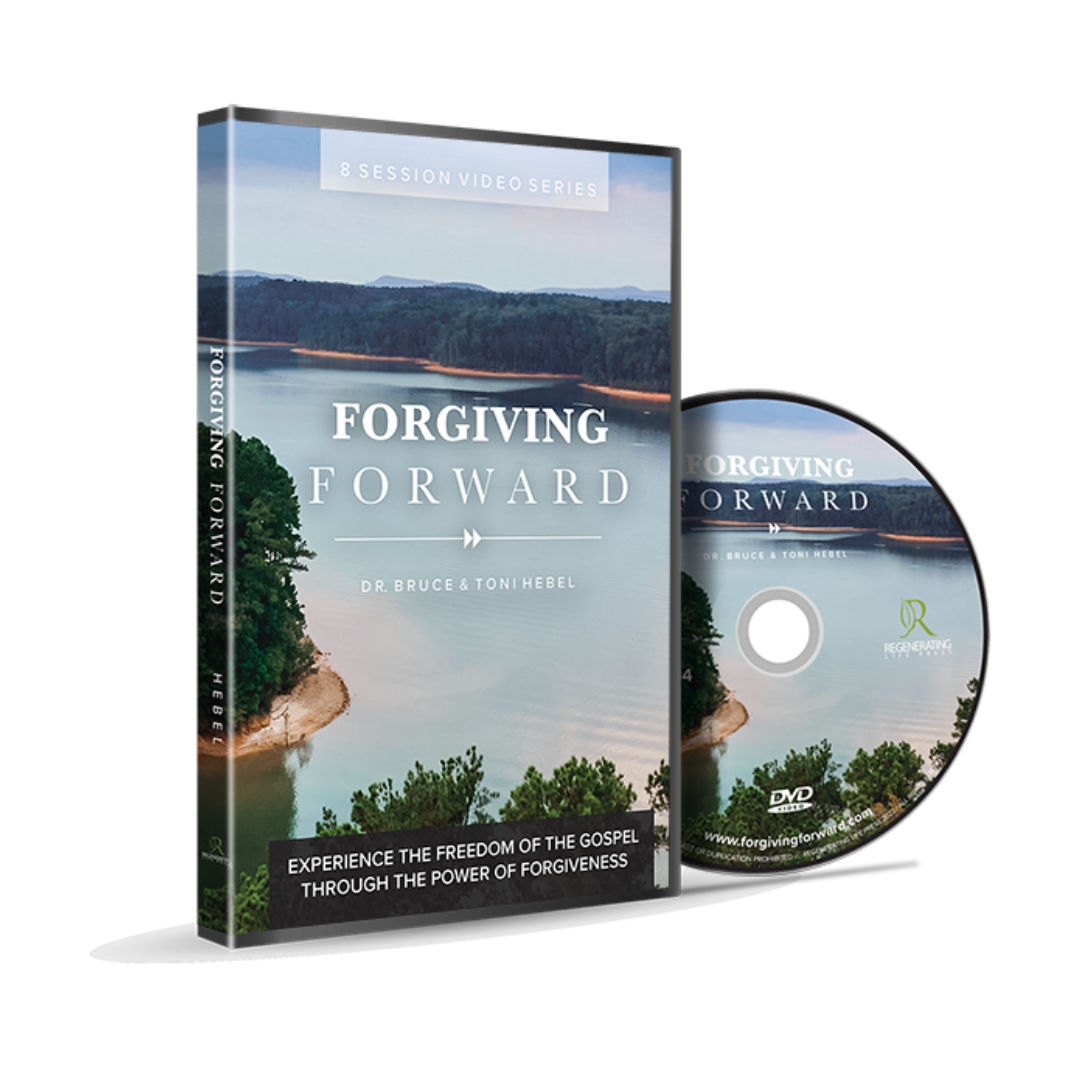“AS GOD IN CHRIST FORGAVE YOU…”
How did God Forgive Us?
Let all bitterness and wrath and anger and clamor and slander
be put away from you, along with all malice.
Be kind to one another, tender-hearted, forgiving each other,
just as God in Christ also has forgiven you.
Ephesians 4:31-32
Forgiveness is such a central part of the Gospel message that no true believer would ever say that forgiveness is a bad idea. We often meet with people who believe that they have forgiven yet are still very much in torment, which is an indicator that they have, in fact, not forgiven. Much of the teaching that is out there about forgiveness, including from Christian sources, comes from a flawed secular foundation. Yet true forgiveness always produces freedom. So how do we know when we have truly forgiven? We can be assured that we have forgiven when we forgive as God forgave us.
How did God, in Christ, forgive us? While there are many aspects of how God forgave us, let me share with you four distinctive characteristics of how God forgave us.
1. He did not excuse the sin or diminish the violation.
Several years ago, in my pre-Forgiving Forward days, God confronted me about my unforgiveness towards a man who had wounded my family and me deeply. One of my failed arguments with God was this: “If I forgive him, it will say that what he did was ok, that it didn’t matter.” In my spirit, I heard God say to me, “Bruce, it wasn’t ok at all. What happened to you was such a big deal to Me that I sent my Son Jesus to pay for what he did.” You see, in God’s eyes, sin is inexcusable, but it’s not unforgivable. So, for us, when we forgive, we are not diminishing the wounds we have suffered, but rather, we are declaring the supreme value of the blood of Jesus.
For the wages of sin is death,
but the gracious gift of God is eternal life in Christ Jesus our Lord.
Romans 6:23
2. He did not dismiss the charges.
Often, we hear people say to someone who has been wounded, just let it go. In fact, I used to teach that forgiveness is letting people “off the hook” for what they did. This view of forgiveness feels as if we are dismissing the charges. This is like someone is caught breaking and entering your house, and you discover it’s the neighbor’s kid. The police ask you if you want to press charges, and you say, “No, I am declining to press charges. Please release them and let them go.” The implication is that I am absorbing the cost and simply releasing them. Yet Gospel-Centric Forgiveness is not that. God didn’t excuse our sin or simply dismiss the charges. He pronounced us guilty and sentenced His son in our place. Jesus bore the punishment for our sin on the cross.
He made Him who knew no sin to be sin in our behalf,
so that we might become
the righteousness of God in Him.
2 Corinthians 5:21
3. He accepted the payment for the offense from a third party.
Imagine driving down the road when someone runs a red light and collides with your car. After determining that everyone was ok, you ask the other driver for two things; his driver’s license and his auto insurance card. When you examine the insurance card and determine that his policy is up-to-date and in force, you breathe a sigh of relief. Why? The insurance card confirms that the damage to your car will be fixed or your car will be replaced, but not by the other driver. No, his insurance company, an entity with far greater resources than he has, is legally obligated to pay for it. God knew we could never cover the debt our sin incurred, and He received as payment in full the blood of Jesus for that debt.
But God demonstrates His own love toward us,
in that while we were still sinners,
Christ died for us.
Romans 5:8
4. His forgiveness opened a pathway for reconciliation.
Reconciliation is the bringing of two alienated parties back into harmony with each other. One party has been violated and therefore wounded; the other party has committed the violation, thereby inflicting a wound. Reconciliation takes place when the wounded party forgives, and the wounding party repents. Both are required for reconciliation to occur. In God’s case, He chose to forgive us, according to Ephesians 1:3-10, “before the foundation of the world.” God was the original violated One. When Adam and Eve rebelled against God’s authority, God’s relationship with man became broken and estranged. The only hope for reconciliation was God’s forgiveness and man’s repentance. Jesus’ substitutionary death settled the debt and made way for God to forgive us. Having received the payment from a 3rd party, God the Father, in Christ, forgave us. Then, having forgiven all our trespasses, actively waits for us to repent in order to be reconciled with Him. Why do I say He ‘actively waits?’ God desires to reconcile with us so much so that He organized all of history to orchestrate His redemptive plan then commissioned His Church to communicate the plan, i.e., the Gospel, to the world.
Now all these things are from God,
who reconciled us to Himself through Christ and
gave us the ministry of reconciliation, namely,
that God was in Christ reconciling the world to Himself,
not counting their wrongdoings against them,
and He has committed to us the word of reconciliation.
2 Corinthians 5:18-19
To summarize, God’s forgiveness does not excuse or dismiss our sin, but instead, he credits the blood of His Son as payment in full for our sin debt and then leaves the reconciliation decision up to us.
So how do we “forgive as God, in Christ, forgave us” when someone wounds us? We don’t excuse wounds or dismiss the charges. What they did wasn’t ok or without consequence. Recognizing that they could never make things right, we accept Jesus' payment on the Cross as payment in full for what they did to wound us. Then, when we bring our forgiveness to the Father’s table, we can enjoy sweet communion with our God as we pray for reconciliation.
Forgiveness is
applying the blood of Jesus as payment in full
for every wound I ever have or will suffer.



